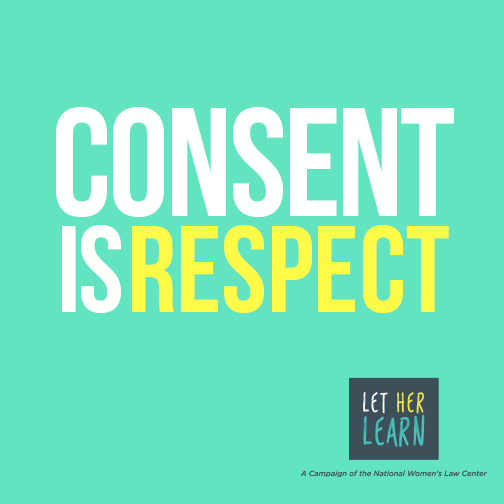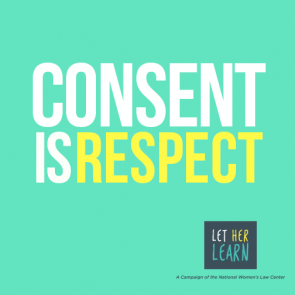Abortion rights, women of color, and LGBTQI+ people are under attack. Pledge to join us in fighting for gender justice.
Combating Sexual Violence to #LetHerLearn

 In our Let Her Learn reports, we found that more than one in five young girls experiences sexual assault before her eighteenth birthday, with even higher rates among girls of color, girls who are pregnant and parenting, girls who are homeless or who are living in foster care, girls in the juvenile justice system, and LGBTQ youth. In other words, the victimization statistics many find shocking among college students also hold for students far younger than that — which means that if educators and communities wait until college to educate young people about issues of consent and sexual violence, they are far too late.
In our Let Her Learn reports, we found that more than one in five young girls experiences sexual assault before her eighteenth birthday, with even higher rates among girls of color, girls who are pregnant and parenting, girls who are homeless or who are living in foster care, girls in the juvenile justice system, and LGBTQ youth. In other words, the victimization statistics many find shocking among college students also hold for students far younger than that — which means that if educators and communities wait until college to educate young people about issues of consent and sexual violence, they are far too late.
Worse, as we’ve seen in so many of the cases we fight on behalf of students who have been wronged by their attackers and again by their schools, without an accurate, compassionate understanding of the nature of sexual harassment and assault as well as how it can be prevented and addressed, schools often turn a blind eye to their students’ suffering — or worse, actively make their lives even harder by pushing them out of school or otherwise punishing them for the violence others have committed against them. Because many of us adults weren’t raised to understand these issues, many educators write off sexual harassment and assault as “boys being boys” or hormonal teens engaging in ill-advised but ultimately unserious youthful misbehavior, instead of recognizing it for the traumatic abuse that it is and acting accordingly. These are both moral and legal failures, which amount to gender-based discrimination.
It doesn’t have to be this way.
For starters, all schools at all levels can and must familiarize themselves with Title IX and the 2011 Dear Colleague Letter that clarifies schools’ obligations to address sexual harassment, including sexual assault. Regardless of what the Trump administration does or doesn’t do with this critical guidance, following that guidance helps educators ensure that they respect survivors’ civil rights and give them the support they need to stay in school.
As part of that work, educators and others involved in raising young people should also make a point of educating themselves about sexual harassment and assault, as well as building positive school cultures rooted in consent and respect. Below is a set of interviews and resources by educators, families, and students intended as a jumping off point for their fellow educators, families, and students who want to be part of the solution to this deeply troubling — but highly solvable — problem. Bookmark this page and follow us on social media, so you can stay in the know as this collection of resources grows. Together, we can not only fight for justice for survivors– we can help build a culture where fewer and fewer people need that advocacy in the first place.





